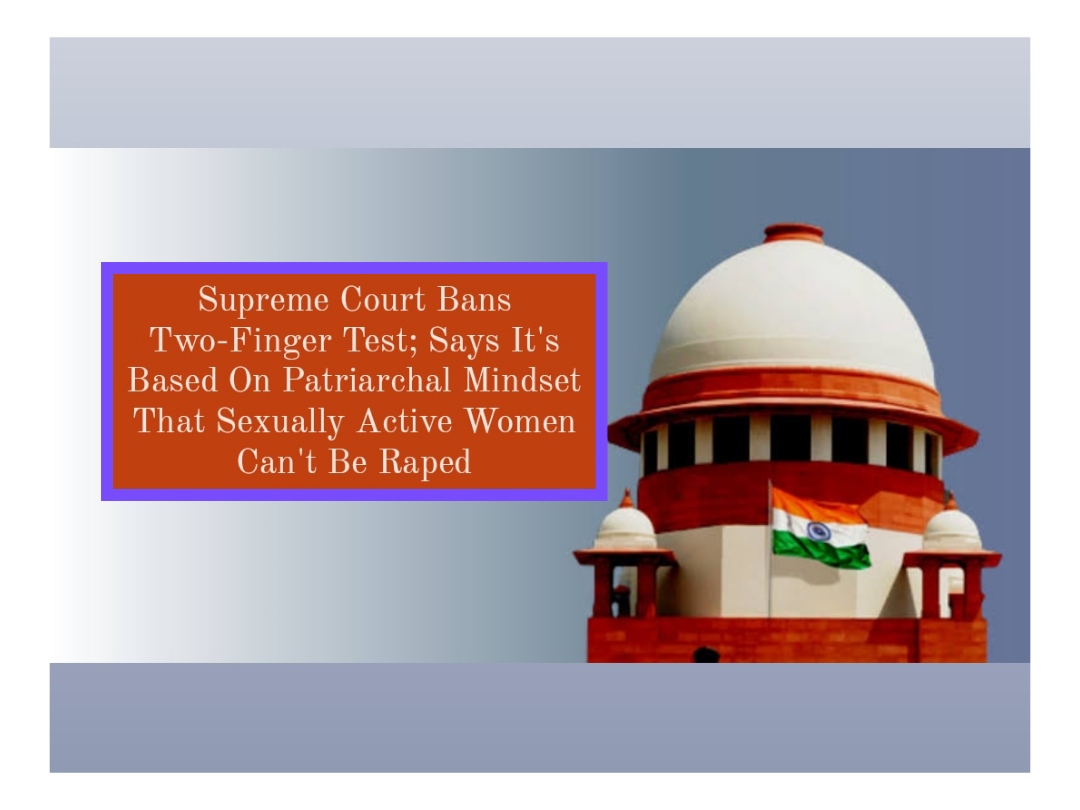New Delhi: Taking another progressive step, the Supreme Court of India on Monday prohibited the use of rather inhumane ‘two-finger test’ in cases of rape and sexual assaults.
Stating it was ‘regrettable’ that such practice continued, the Supreme Court bench of Justice DY Chandrachud and Justice Hima Kohli made the observations.
“This court has time and again deprecated the use of two finger test in cases alleging rape and sexual assault. The so called test has no scientific basis.”
Stating the test re-victimises and re-traumatises the women, the court warned that, “the two finger test must not be conducted.”
“The test is based on an incorrect assumption that a sexually active woman cannot be raped. Nothing can be further from the truth.”
The bench made the observations while restoring conviction in a rape case and called the practice ‘patriarchal’ and ‘sexist’.
“The probative value of a woman’s testimony does not depend on her sexual history. It is patriarchal and sexist to suggest that a woman cannot be believed when she states that she was raped merely because she is sexually active.”
In the concluding statements, the bench ordered the union government and state governments to ensure that guidelines laid down by the Department of Health and Family Welfare are implemented in government and private hospitals.
The Indian Supreme Court lately has been taking a modern and progressive stance in dismantling the archaic ideas about the customs in society.
“Familial relationships may take the form of domestic, unmarried partnerships or queer relationships,” said the court.
Further building upon its statement, the bench comprising of Justices DY Chandrachud and AS Bopanna asserted that atypical family units are also entitled to equal protection of the law.
“A household may be a single parent household for any number of reasons, including the death of a spouse, separation, or divorce. Similarly, the guardians and caretakers (who traditionally occupy the roles of the “mother” and the “father”) of children may change with remarriage, adoption, or fostering.”







